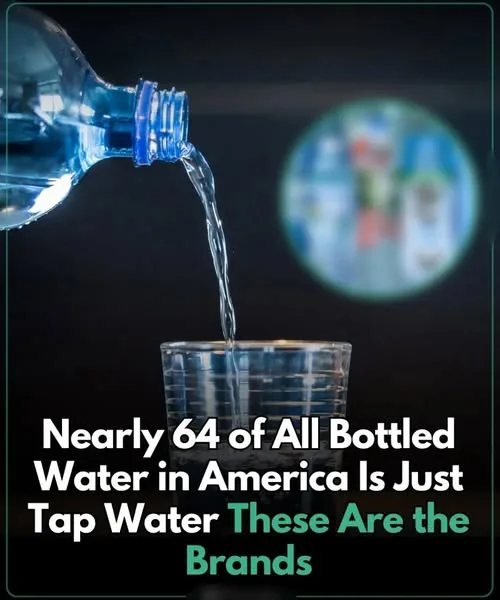The Shocking Truth About Your Bottled Water
We’ve all been there. Reaching for a refreshing bottle of water, believing we’re choosing a healthier, purer alternative to tap water. But what if that belief is a misconception? A recent survey unveiled a startling truth about the bottled water industry in the United States, leaving many questioning the value and transparency of their purchase.
More Than Just Tap Water in a Bottle?
The survey results are frankly astonishing: a staggering 64% of bottled water sold in the US originates from municipal sources. That’s right, the same water flowing from your kitchen tap is often the very source of those pricey bottles. This fact alone should give us pause. Are we truly paying a premium for something we already have access to? The convenience factor is undeniable, but the cost and environmental impact are significant considerations that often outweigh the perceived benefits.
The Illusion of Purity
Beyond the source material, the level of purification applied is another crucial point. The survey revealed that some brands engage in minimal processing, essentially bottling tap water with very limited treatment. This raises serious concerns about potential contamination. In some cases, these minimally processed bottled waters have even been found to exceed acceptable limits for certain contaminants. This completely undermines the advertised purity and health benefits often associated with bottled water.
Transparency: A Missing Ingredient
The lack of transparency surrounding the processing and sourcing of bottled water is particularly worrying. Consumers deserve to know exactly where their water comes from and what processes it undergoes. The current system, however, often lacks the necessary clarity. Without detailed labeling and rigorous independent testing, it’s difficult for consumers to make truly informed choices. This lack of transparency allows companies to exploit the perceived health and purity benefits without being fully accountable for the quality of their product.
The Environmental Cost
Beyond the question of purity and value, the environmental impact of bottled water remains a significant concern. The production, transportation, and disposal of plastic bottles contribute significantly to pollution and waste. Considering that a large percentage of this water is simply tap water in disguise, the environmental cost of this convenience becomes even more unsustainable.
Making Informed Choices
Ultimately, the choice of whether or not to purchase bottled water remains a personal one. However, understanding the facts presented here – the source, the minimal processing in some cases, the lack of transparency, and the significant environmental consequences – empowers consumers to make more informed and responsible decisions. Perhaps, reevaluating our reliance on bottled water and exploring more sustainable alternatives is a change worth considering.
https://dailydailys.com/




